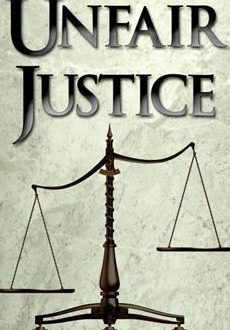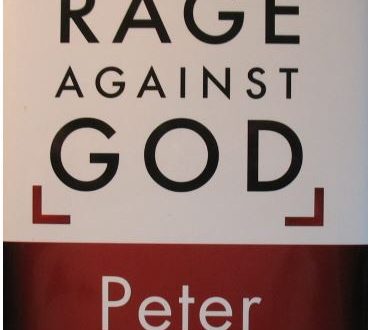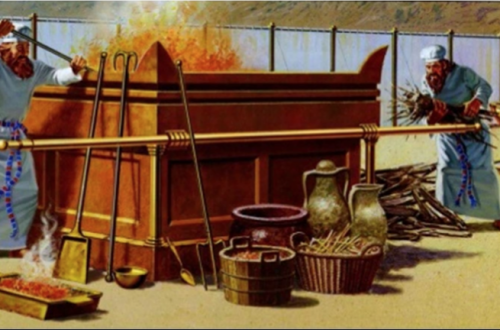Good News – Lamentations 5
About Lamentations
This short book is generally attributed to the prophet Jeremiah and it is assumed this book was written during the early stages of the Babylonian captivity sometime not long after 586 BC. It laments the destruction of Jerusalem and the wretched conditions experienced by the Jews left behind in the rubble.
About Lamentations
This short book is generally attributed to the prophet Jeremiah and it is assumed this book was written during the early stages of the Babylonian captivity sometime not long after 586 BC. It laments the destruction of Jerusalem and the wretched conditions experienced by the Jews left behind in the rubble.
Some interesting things to note: In Jewish bibles this book is among the Writings rather than nestled with the book of Jeremiah as we find in our Christian bibles. It is comprised of 5 unique poems of sorrow. Nowhere does the book mention the Babylonians by name. It credits God with their destruction and assumes the reason for God’s chastening is their own sin. Based on the behavior of Israel’s human leadership up to this point and the testimony of God given by several other biblical authors of this general period I would have to agree. It is Jewish custom to read this book on the anniversary of the destruction of the temple on 9 Av. The temple was destroyed on this date in 586 BC and again in 70 AD.
Our Condition
Lam 5:1 Remember, O Lord, what has befallen us; look, and see our disgrace! The author begins by seeking God’s attention. The supplication begs God to see he realizes what an awful condition he is in. How can we be humble before God if we don’t see how lowly we truly are? We know God looks with favor on the humble (Mt 23:12, Jas 2:5).
Our Loss
Lam 5:2-3 Our inheritance has been turned over to strangers, our homes to foreigners. We have become orphans, fatherless; our mothers are like widows. Jeremiah knew the inheritance of Israel was the land promised to Abraham. First the Assyrians took over the Northern Kingdom, now Babylon conquered the Southern Kingdom. Foreigners were literally taking everything of value. Most of the able bodied men and women were deported for labor leaving behind the very young, old, or otherwise unproductive. Like us, the author could only see what was around him. This was truly devastating and a severe punishment (2 Pe 2:20), but as the inspired Lament of God there seems to be something more to this message. He was speaking of physical loss. We know God does not abandon those He loves (1 Th 5:24), though he does chastise and test us (Mal 3:3). If we experience loss in this world it is a consequence of sin whether our own, our ancestors’, or the fallen in our midst. The eternal hope remains, but in the face of such dyer physical reality it is hard to keep faith (Jn 21:25-29).
Our Physical Reality
Lam 5:7 Our fathers sinned, and are no more; and we bear their iniquities. Lam 5:4-14 is a litany of woes experienced by those left in Jerusalem. They can’t afford food, they get no rest, the slaves of their conquerors rule over them and rape their women, their young men are forced into hard labor or are hung if they don’t comply, the old are abused and so on. This sounds horrible, but it also sounds a lot like the evening news of today. Adam and Eve tried to make themselves equal to (or better than) God and disobeyed Him. Cain murdered for pride. Esau gave up his birthright to sate his appetite. Jonah got swallowed by a fish because he thought he knew better than God what to do with the heathen. My own father refused to go to kneel to Jesus until his last month on earth because he thought he knew better, all the while rebelling what his heart knew was right. It might not be fair by our estimation, but we live in a fallen world. We are victimized daily by a fallen system governed by powers of darkness. When we persist in our rebellion we only add to the darkness. Even if we are not of the world, we remain in the world and are subject to its curses. The author of Lamentations was speaking specifically about paying for the sins of those in the generation(s) before him. He is humble, but those before him were not. They enjoyed luxury, yet he is the one standing in the rubble. Through the lens of time and distance, with a little help from the Spirit, we can look at this and see it differently. First, God waits far longer than we think He should to give us time to repent. When we do have to pay the consequence of sin, even if it is for those who’ve gone before us, what would our eternal consequence be if God didn’t intervene? Would we rather suffer eternally because the Lord didn’t bust up the party? Are we so selfish and so short sighted we can’t see through the fog of physical reality to what God really wants to give us? Sin has consequence. Jesus paid the debt (1 Jn 2:2) so those who believe and obey have hope for eternal life without sorrow and suffering. In this life, so long as our souls are awake here, we live in this world and we have very real consequences. The process of chastening and correction need not be enjoyed, but we should find joy in knowing the benefit of the end result (Jas 1:2-4), what we hope for, the ultimate victory.
We Are the Sinner
Lam 5: 16 The crown has fallen from our head; woe to us, for we have sinned! None of us are perfect (Eccl 7:20). Until we accept responsibility we are not yielding. Until we accept we are but clay, the Potter cannot make a good pot to hold good things in us (Is 45:9, Ro 9:21). The author also realizes that their condition is one out of line with God’s will and unworthy of God’s grace. We deserve what we get and we reap what we sow.
The Good News of Lamentations 5
Lam 5:19-22 But you, O Lord, reign forever; your throne endures to all generations. Why do you forget us forever, why do you forsake us for so many days? Restore us to yourself, O Lord, that we may be restored! Renew our days as of old—unless you have utterly rejected us, and you remain exceedingly angry with us. We know we can’t live forever with peace and joy on our own. We also know God is eternal and can provide us with such a life if He chooses. In our agony we feel abandoned, but God made many promises of hope for restoration and forgiveness. Jeremiah cried out to God asking for restoration and renewal precisely because he did have hope God would forgive the sin (Jer 31:34). Through God’s provision of the cross, the ultimate penalty has been paid and forgiveness is given (Lk 24:46-47). Grace was shown through the greatest act of love of all time (Jn 15:13). Victory over death is achieved (Is 25:8, 1 Jn 5:11-12, Jn 11:25-26) and because of this, restoration of our relationship to God is granted in this life through the gift of the indwelling Spirit (Jn 14:15-17). Renewal is given through the resurrection we hope for into new life (Jn 6:44).


